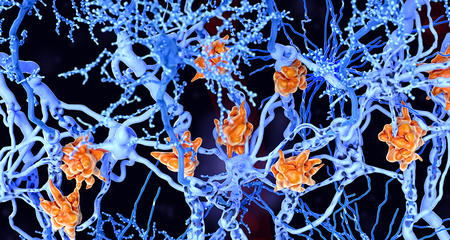Multiple sclerosis (MS) is an unpredictable progressive neurological disorder that affects the central nervous system, including the brain, spinal cord, and optic nerves.
- About 400,000 people in the United States have MS.
- It is usually diagnosed between the ages of 20 and 50.
- Women develop the disease at twice the rate of men.
In MS, the immune system attacks nerve fibers and the fatty coating (called myelin) that surrounds them and acts as an insulator, allowing electrical impulses to travel along nerves quickly and efficiently. When the myelin is destroyed or damaged, scars or "sclerosis" develop, which interrupt nerve signaling. Symptoms vary from person to person.
MS Symptoms
Symptoms of MS include, but are not limited to:
- Fatigue
- Numbness or tingling
- Vision problems
- Muscle weakness and stiffness (spasticity)
- Walking (gait) difficulties
- Balance issues
- Coordination difficulties
- Bowel and bladder problems
- Speech problems: Slurred speech
- Cognitive changes: Memory problems, decreased concentration, slower thinking
- Emotional changes
- Sexual dysfunction
Types of MS
- Clinically Isolated Syndrome (CIS)
- A single episode of MS-like symptom(s) lasting at least 24 hours.
- A person with CIS may or may not develop MS.
- No new disability between attacks.
- Relapsing-Remitting MS (RRMS)
- Most common form of MS, about 85%.
- Symptoms may improve or disappear during remission (recovery).
- No new disability between attacks, but followed by a steady increase in disability.
- Secondary-Progressive MS (SPMS)
- Symptoms worsen steadily over time.
- May or may not have relapses and remissions.
- Most people with RRMS will transition to SPMS.
- Primary-Progressive MS (PPMS)
- Least common form of MS, about 10%.
- Steady progression of disability without attacks.
- No relapses or remissions.
- Progressive-Relapsing MS (PRMS)
- Rarest form of MS, about 5%.
- Steady progression from the beginning.
- Acute relapses but no remissions, with or without recovery.
Source: National MS Society
Neuromyelitis Optica (NMO)
Neuromyelitis optica (NMO), also known as Devic's disease, is an autoimmune disorder that primarily affects the optic nerves and spinal cord. The damage to the optic nerves cause pain and loss of vision. Individuals who experience damage to the spinal cord may experience weakness or paralysis in the legs or arms and problems with bladder and bowel function. With NMO, there may be periods of remission and relapse, like MS.
Comprehensive, Multidisciplinary Care

Our Multiple Sclerosis Clinic, a member of the Consortium of Multiple Sclerosis Centers and recognized by the National Multiple Sclerosis Society, provides comprehensive, individualized care to patients with MS. The Froedtert & the Medical College of Wisconsin Froedtert Hospital is a Center of Comprehensive MS Care as designated by the National MS Society.
Our team of experts are recognized regionally and nationally for their leadership in MS research and clinical trials and for their aggressive approach to MS treatment. We use state-of-the-art imaging technology techniques to help accurately pinpoint areas of damage in the brain caused by MS.
The team will utilize the expertise of other specialists from the Froedtert & MCW health network, including urologists, ophthalmologists, neuro-ophthalmologists, neuroradiologists and physical medicine and rehabilitation providers to address the needs of each patient. Our team will arrange for patient appointments into these specialty areas.
In addition to diagnosing and managing the disease and its symptoms, we provide a strong focus on patient education, helping patients and their families learn to adapt the challenges that the disease presents, and promoting wellness.
Virtual Visits Are Available
Safe and convenient virtual visits by video let you get the care you need via a mobile device, tablet or computer wherever you are. We'll assess your condition and develop a treatment plan right away. To schedule a virtual visit, call 414-777-7700.



